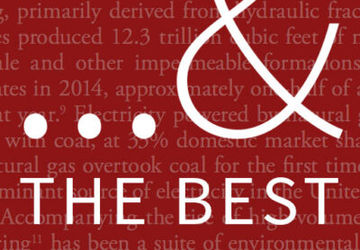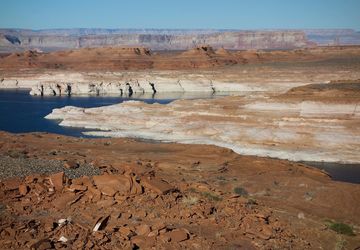Harry Katz (he/him)
Hometown: Ashland, VA
Major: American Studies ‘24
Internship: National Conference of State Legislatures
As an intern at the National Conference of State Legislatures, Harry Katz reflects on the value of following disparate threads and thinking big
I’ve certainly had bigger moments with the National Conference of State Legislatures (NCSL) — whether preparing for the national conference or sitting in on meetings with state election directors that hold the fate of our country in their hands every few years — but the story that I’m proudest of and that most exemplifies the spirit of freedom and inquiry I found working for the NCSL is rather small.
I’ve been interested in popular referendums for a long time, and while I feel rather dorky even typing that out, it’s the truth. A lot of political pundits will tell you that ballot measures and citizen initiatives are too disconnected from national politics to truly be indicative of public opinion, but I think it’s the opposite. I earnestly believe that looking at the electoral map of a presidential election, or even a statewide race, tells your far less about a state or community than we pretend it can. Take New Hampshire, for instance: It’s voted for the Democrats in every presidential election since ‘04, it’s got two Democratic senators and a matching set of Democratic House representatives … and yet it’s got looser gun laws than South Dakota and a lower sales tax than Oklahoma. You would never know those eccentricities, those true and direct measures of people’s priorities, if you stopped at the top level with Biden’s seven-point win there in 2020. And yet, despite how telling I think these ballot measures clearly are, I’ve long struggled to make people, especially political people, care even a little about them next to actual elections. Not so with the NCSL.
Wendy Underhill and Ben Williams — my boss and my boss’s boss respectively — eagerly and enthusiastically helped me take my interests and research to the next level. Ben and Wendy’s passions matched and even exceeded my own, and nowhere was this more apparent than in their encouragement that I follow the thread of a story on abortion rights in Ohio. What began as a simple story on Ohioans heading to the polls to vote on the legality of abortion quickly turned into something more nuanced. I ended up investigating the connections between the vote on abortion, a last-minute effort to restrict the power of direct democracy in the Buckeye State, and a wave of similarly restrictive measures sweeping through swing states across the country. Through several rounds of edits and proofreading, we polished the story until it was ready for publication with the NCSL, where it now appears alongside other articles of political analysis from the organization.
Again, it’s a small moment with a big group. There are others I could turn to that would more easily convey the importance and humanity of the work. For example, I helped an Arizona legislative staffer who wanted to craft more inclusive voting methods by researching the history of disenfranchisement of disabled Americans. I read the testimonials of elderly Virginians who had had their voting rights restored after losing them for decades due to felony convictions. Those moments are important to me too, and I hold them quite dear. But I choose to center the story of Ohio’s Amendment 1 and the connecting issues because I think it gets to what the heart of a research assignment in a good work environment is: a trail of breadcrumbs to follow.
Through my time with the NCSL, I’ve learned to see more connections between different political issues and processes than ever before. As I move forward, it is the ability to draw out and follow the connections between minutiae to bring a wider picture into focus that I will treasure most. Getting to meet Senator Tim Kaine wasn’t half bad either!



